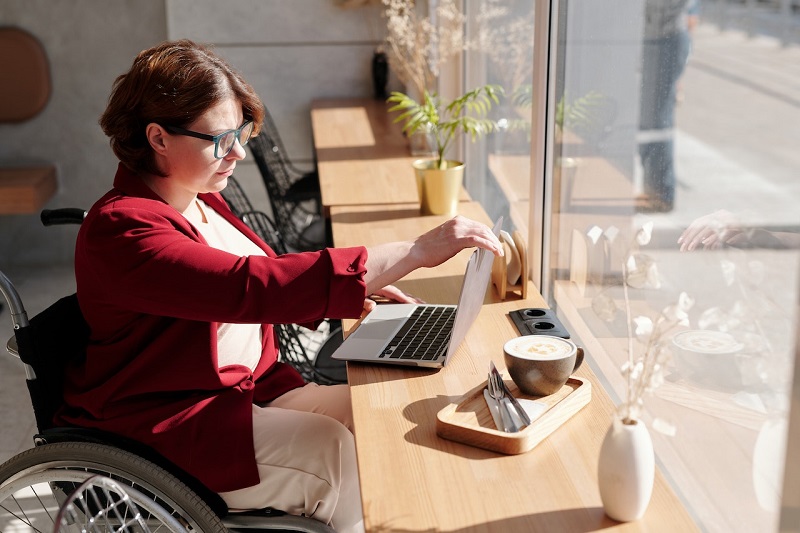Career Development: 7 Tips for Young Women With Disabilities

Entering the workforce is a difficult process for any young adult. But if you’re a woman with a disability, these difficulties are often increased by the fear of facing a lack of equal opportunities and handling discrimination in the workplace. Fortunately, it doesn’t always have to be challenging. With some advanced planning and a few smart steps, you can start building your career much more easily. With that in mind, here are some tips every young woman with a disability should consider:
1. Know your rights
Before you enter the workforce, it’s absolutely essential to know your rights as a woman and a person with a disability. In most countries around the world, you are protected by law against discrimination based on your gender and disability. In many cases, you are entitled to receive reasonable accommodations as well, depending on your unique requirements. Get familiar with your local laws by visiting government websites and contacting helpful organisations. Once you know your rights, you can protect yourself against discrimination and ensure you are being treated fairly and equitably by employers.
2. Choose a good career
It would also be a good idea to research all the industries that appeal to you, and narrow down that list to the most suitable choices before you begin building your career. As money is often the main motivator, choose something with good earning potential, such as a business degree. Don’t focus on making plenty of money straight away. Instead, opt for a career that will allow you to grow and develop over time, thus ensuring it’s actually rewarding. Keep your disability in mind as well. If flexibility is an important factor, for example, explore versatile industries like marketing and IT.
3. Be more creative

As already mentioned, employees with disabilities are generally entitled to reasonable accommodations in the workplace. However, many adults with disabilities find it more comfortable and simply easier to avoid the hassle of daily commutes and restrictive office environments. If this is the case with you as well, consider roles that will allow you to work from home. Remote work gives you greater control over your daily schedule and overall work environment. Similarly, you might want to think about starting your own business and being in complete control of your career, although this option may come with more work and effort.
4. Get some support
Building a career is an overwhelming process for anyone – don’t be afraid to seek out support to make your professional journey smoother and easier. For instance, you can find a unique accommodation option such as a supported independent living home that will allow you to achieve the goal of autonomy while still receiving the assistance you may need. A service animal could also help to reduce some common stress and anxiety, and support you in this major life change. Regardless of the solution you choose, meeting your needs through additional support will be extremely helpful.
5. Find a good mentor
If at all possible, try to find a good mentor when developing your career. They can be quite beneficial to your journey, especially if you choose another woman with a disability as your mentor. She likely knows exactly what you’re feeling and which obstacles you are facing in the field you are entering. As such, she is better equipped to provide valuable advice and support, and thus help you enhance your career. Even if you don’t find a mentor, don’t overlook the importance of networking. Making connections through industry events and professional organisations can open a number of new career opportunities.
6. Leverage technology

Social media platforms can be invaluable tools for finding job openings and researching prospective companies. These websites can also aid in connecting with other women with disabilities, who can be an excellent source of support and solidarity in your professional journey. LinkedIn is one of the best career-driven platforms for connecting with potential employers and making your existing network work for you. Leverage it by creating a profile and filling it with your achievements and positive posts.
7. Work on your own
If you don’t land a job straight away or ace your first interview, try to stay positive. It will take time to build a successful career. To build up your resume in the meantime or join the workforce in a different way, you could also try freelancing. Use any skills and competencies you might have to employ yourself and offer your services directly to clients. Freelancing websites are great for finding new opportunities, where you could try writing for blogs, designing websites, providing PR services, and much more.
Building a career is a difficult process, one that might come with more challenges for young women with disabilities. Use the advice mentioned above to streamline this journey and accelerate your road to long-term professional success.